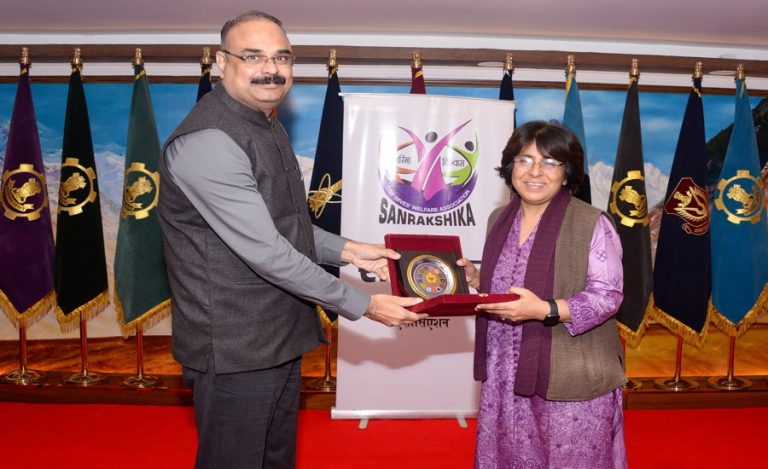New Delhi: Indian Oil Corporation (IOC), the country’s largest refiner and fuel retailer, will comply with all applicable international sanctions, its Chairman Arvinder Singh Sahney said on Monday, amid tightening Western restrictions on Russian energy trade.
Speaking to reporters in New Delhi, Sahney stated, “We will abide by all sanctions imposed by the international community,”
steering clear of direct remarks on IOC’s current or planned Russian oil purchases.
IOC’s Russian Oil Share at 21% in H1 FY26
Russian oil accounted for 21 percent of IOC’s total crude imports between April and September 2025, making it a significant but declining share of the company’s crude slate.
Industry sources confirmed that IOC’s subsidiary, Chennai Petroleum Corporation Ltd (CPCL), has halved its Russian crude imports this month, coinciding with new US sanctions announced earlier in October.
New Sanctions Target Rosneft and Lukoil
On October 22, US President Donald Trump imposed sanctions on Russia’s Rosneft and Lukoil, two major suppliers of crude to India, in an effort to further curb Moscow’s oil revenue amid the ongoing war in Ukraine.
A day later, the European Union followed suit, imposing a full transaction ban on Rosneft and Gazprom Neft, tightening financial and shipping constraints for buyers of Russian oil.
While the Indian government has not issued an official statement on the latest sanctions, refiners are closely monitoring the banking and shipping sector’s response before finalizing their import strategies.
Reliance and Nayara Likely to Adjust Import Strategies
Reliance Industries Ltd (RIL), India’s largest private refiner, which has a 25-year term contract with Rosneft to buy up to 5,00,000 barrels per day (bpd), is expected to halt or sharply reduce imports from Moscow to ensure full compliance.
Last week, Reliance said it would “fully comply with Western sanctions” and maintain operational stability through diversified crude sourcing. Its Jamnagar refinery, the world’s largest, processes 1.24 million bpd and has the flexibility to handle a wide range of global crude grades.
Meanwhile, Rosneft-backed Nayara Energy, which relies almost entirely on Russian crude, faces limited alternatives due to existing European sanctions that have restricted non-Russian supplies.
Impact on Refiners’ Margins and Import Mix
Analysts warn that any disruption in discounted Russian Urals supplies could narrow refiners’ margins, as Russian barrels have accounted for up to 40% of India’s crude basket in recent years.
With discounts shrinking and sanctions tightening, Indian refiners have already begun diversifying their crude mix, importing higher volumes from Colombia, Canada, and the Middle East.
Data shows India’s Russian crude imports averaged 1.68 million bpd between July and September 2025, down 13% from the previous quarter.
India’s Shifting Oil Landscape
India, the world’s third-largest crude importer, turned to deeply discounted Russian oil after the 2022 Western sanctions limited Moscow’s access to Europe. At the peak, Russian crude accounted for nearly 40% of India’s total oil imports.
Currently, Russia still supplies about one-third of India’s crude needs — around 1.75 million bpd in 2025 — with 1.2 million bpd sourced directly from Rosneft and Lukoil.
Despite tighter restrictions and even as the US imposed a 50% tariff on Indian goods, India’s Russian crude imports in January–September 2025 were only 4.6% lower year-on-year.
According to Sumit Ritolia, Lead Research Analyst (Refining & Modelling) at Kpler,
“Russian crude flows are expected to remain between 1.6 and 1.8 million bpd until November 21, but direct volumes from Rosneft and Lukoil are likely to decline thereafter, as Indian refiners seek to avoid secondary sanctions.”
Outlook
Analysts say that while Indian refiners are expected to gradually reduce exposure to Russian barrels, complete disengagement remains unlikely in the short term, given the economic advantages and long-term contracts in place.
However, the shrinking discount on Russian Urals, coupled with tightening compliance oversight, may accelerate India’s pivot back to Middle Eastern and Latin American suppliers.
About IOCL
Indian Oil Corporation Limited (IOCL) is India’s largest state-controlled oil and gas company, a ‘Maharatna’ Public Sector Undertaking with interests spanning the entire hydrocarbon value chain, including refining, pipelines, and marketing. It operates refineries, a vast pipeline network, and a wide network of retail outlets and service stations across India. The company also has business interests in petrochemicals, exploration, and production.




























